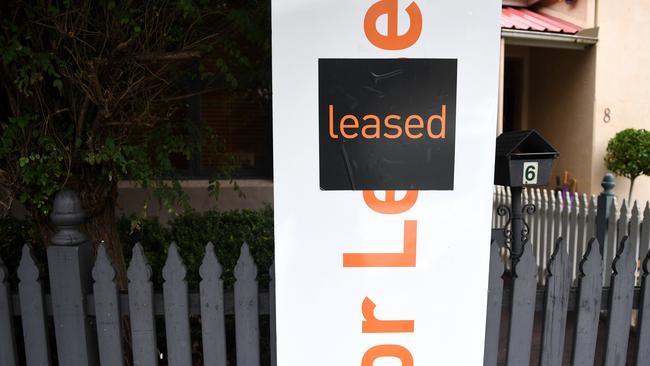Hard-hit renters unlikely to avoid the impact of rate rise
Rising mortgage rates are unlikely to only affect homeowners, with investors likely to pass on the additional costs to renters.

Rising mortgage rates are unlikely to affect only homeowners, with investors likely to pass on the additional costs to renters.
Weekly asking rents have climbed significantly over the past 12 months in all parts of the country in response to tightening rental supply and higher demand.
Tuesday marked the fifth consecutive time the Reserve Bank of Australia raised rates, taking the cash rate to 2.35 per cent from the record lows in May. While the banks were sluggish to respond to the decision – none of the big four institutions had moved to lift mortgage rates by Wednesday afternoon – SQM Research managing director Louis Christopher said he believed renters would eventually feel the increase.
“There is this perception that no matter the market, landlords will pass on the costs,” he said. “They can’t do that in a soft market. At the moment, they (landlords) are in a significant position to pass the rate on to tenants … whether like-for-like or maybe even more in light of inflation.”
The national rental vacancy rate held steady at a tight 1 per cent through July, prompting capital city asking rents to climb by 1.2 per cent over the month, SQM reported.
Brisbane recorded the most significant change in capital city rental costs over the past 12 months (up 20.7 per cent), followed by Sydney (up 19.5 per cent) and Adelaide (up 18.1 per cent).
PropTrack economist Paul Ryan said the relationship between rates and rents was complicated, and while interrelated there was not a direct effect.
“I don’t think it is right to say rates are ‘passed on’ by landlords,” he said. “Interest rates will put pressure on the cashflow of investors and lead to some taking their properties from the market.”
The latest rise to the cash rate comes two weeks after federal Greens called for a national two-year rental freeze and similar legislation was proposed in Queensland. Scotland has introduced a pause on increases as part of a broader suite of measures to alleviate cost-of-living pressures.
Mr Christopher said such legislation in Australia would be a “recipe for disaster” and encourage more landlords out of the long-term rental market at a time when supply was already tight.
Rising rental costs could encourage more investors to buy, which Mr Ryan believes could have an “equilibrium effect” on the market.
“Although it is not necessarily good news, hopefully it (rising rents) will entice into the market and that is what we hope will bring the market back to balance,” he said. “That is the unfortunate reality of renting in the housing market at the moment.”




To join the conversation, please log in. Don't have an account? Register
Join the conversation, you are commenting as Logout